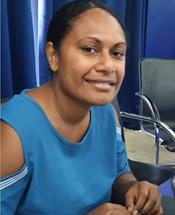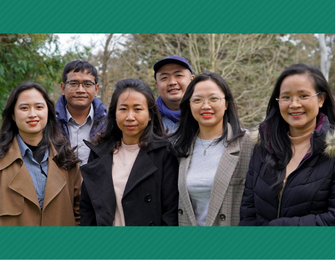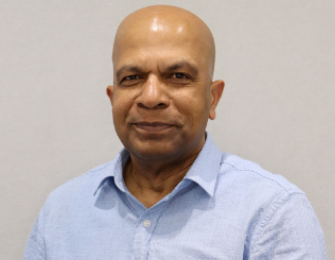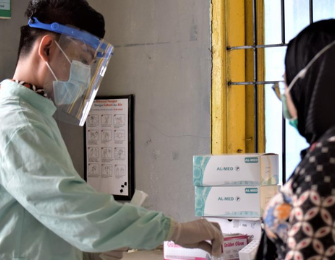
First published on The Pacific Community website.
Capacity building and strengthening of core competencies for public health is a priority of the Pacific Public Health Surveillance Network (PPHSN) since its creation twenty-five years ago. Throughout the years, the Pacific Community (SPC) together with PPHSN partners developed and delivered several training courses in field epidemiology and public health surveillance for the region.
The Australian Department of Foreign Affairs and Trade is a key funding partner along with Agence Française de Développement, the European Union, the German Development Bank, the New Zealand Ministry of Foreign Affairs and Trade and the US Centers for Disease Control and Prevention.
In 2013, they redeveloped the data for decision-making (DDM) training programme, now called the Postgraduate Certificate in Field Epidemiology (PGCFE), to suit training needs expressed by Pacific Ministers of Health.
This unique capacity development programme is accredited by the Fiji National University. As of today, 120 health professionals from 10 Pacific Island countries and territories have completed the PGCFE.

Florita Toa Sitobata, Public Health Nurse Educator at the Vanuatu College of Nursing Education is one of the 120 graduates.
I began with a post-graduate certificate in Field Epidemiology delivered by SPC facilitators and graduated in December 2019. After which I successfully enrolled in the Post-Graduate Diploma programme at Fiji National University, and then successfully enrolled in the master's programme in Applied Epidemiology, which I completed in November, 2021.
After completing the training, I was able to develop a COVID-19 response plan for the Vanuatu College of Nursing Education (VCNE), in preparation for any future COVID-19 community transmission in Vanuatu.
What improvement project did you work on and how this complemented or strengthened your existing work or program?
I did a review of the existing lesson plan being used in teaching public health at the Vanuatu College of Nursing Education. I expanded the curriculum based on what I learned from the PGCFE course and had written a teacher’s manual to serve as a guide to standardize the delivery of the topic. One of my aims is to integrate the public health surveillance subject in the public health modules.
Why do you think this PGCFE program is important?
The program is very important as the knowledge and skills that I acquired helped me to prepare and respond to the COVID-19 pandemic. I was part of the team that trained public health professionals in contact tracing in preparation for COVID-19 outbreak in Vanuatu, and I am involved in contact tracing and case investigation with the team as Vanuatu is currently going through a community outbreak of Omicron variant.
The course also enabled me to effectively deliver training to student nurses on public health surveillance, epidemiology, Health Information systems and infectious diseases; to be able to carry out public health duties successfully and competently after graduating and work in their designated areas.

Another key objective of the PGCFE programme is to build a cohort of PGCFE country facilitators and mentors. Florita, like a number of PGCFE graduates across the region, has supported the delivery of new PGCFE courses in her country.
‘This course enabled me to also join the Vanuatu team to facilitate the training of DDM programs to the second cohort group of health officers from across the different health departments who undertake Module 3 of the Post graduate Certificate of Field Epidemiology in January this year’.
The success of this large-scale training programme can be attributed to the engagement and collaboration of many members and partners of PPHSN, including the ministries of health of the Pacific Island countries and territories, the Pacific Island Health Officers Association, Fiji National University, the US Centers for Disease Control and Prevention, Hunter New England Local Health District in Australia, the World Health Organization, the University of Guam and SPC.
The Centre provides funding under the Pacific Evidence Informed Policies and programs (Pac-EVIPP) investment.
Banner Photo: PGCFE training in Vanuatu, January 2022.
Additional photo: PGCFE training group, January 2022.




